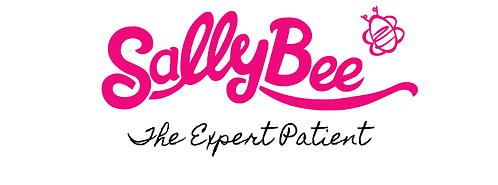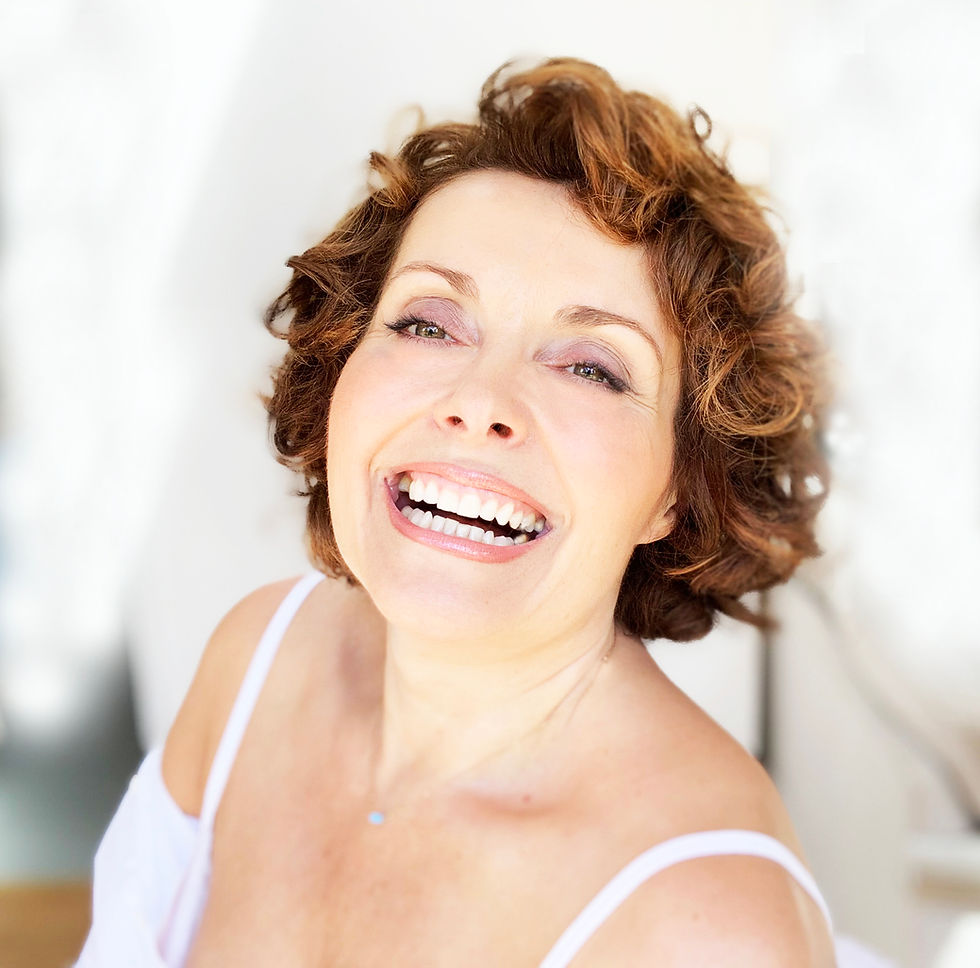Part 1 - Coping with a Cancer Diagnosis: A Brutally Honest & Refreshing Guide!
- Sally Bee Team
- Nov 19, 2024
- 5 min read
Updated: Dec 4, 2024

Getting a cancer diagnosis, or indeed any diagnosis, can feel overwhelming, bringing a flood of emotions like fear, uncertainty, and sadness. It’s certainly a challenging experience, but it’s also one where you can discover resilience and find hope and incredible strength. I know you’ll think I’m crazy saying that, especially if you are still reeling from the shock of your diagnosis - but I promise you there is light at the end of the tunnel.
I can’t dictate to you how the medical side of your journey is going to turn out and of course, that’s your biggest fear right now, but I can, with 100% certainty, tell you that you CAN control how you react, your perspective and your state of mind. That's where I can help!
Navigating Emotional Reactions After a Cancer Diagnosis
It’s completely natural to feel a whirlwind of emotions after a cancer diagnosis. Fear of the unknown, anxiety about treatment, and concerns about the future can feel overwhelming. On top of that, you might find yourself managing other people’s reactions—which can sometimes be less than helpful.
Let’s face it: friends and family often mean well, but their comments can sometimes miss the mark. You’ve probably already heard some of these classics:
“Well, we could all get run over by a bus tomorrow!”
(Really? But do you spend every waking moment imagining that happening? Of course not. People who say this usually haven’t had to confront their own mortality—lucky them!)
“Oh, you’ll be fine!”
(Thanks for your confidence! But even my oncologist doesn’t know this for sure, so dismissing my very real fears isn’t exactly helpful.)
“Oh, you’ll be running marathons in no time!”
(Seriously? I can barely make it up the stairs right now without needing a nap. Plus, I never wanted to run a marathon before, so why would I start now?)
The Power of Pre-Prepared Answers
Rather than letting these comments get under your skin, having a few witty, light-hearted responses ready can turn these situations into a game. You might even find yourself inwardly smiling when someone says something silly, just so you can deliver your clever comeback.
Here are some examples:
Stupid, thoughtless statement: “Well, we could all get run over by a bus tomorrow!”
Super clever answer: “Oh no! Don’t tell me I have to watch out for buses too—I thought cancer was enough to worry about!” (Smile, turn, and walk away.)
Stupid, thoughtless statement: “Oh, you’ll be fine!”
Super clever answer: “Oh, thank goodness! I was worried I might need to listen to my doctors, but if you say I’ll be fine, then I won’t worry anymore!” (Smile, turn, and walk away.)
Stupid, thoughtless statement: “Oh, you’ll be running marathons in no time!”
Super clever answer: “Wow, great news—so my cardiologists got it all wrong?” (Smile, turn, and walk away.)
People often don’t realise how their words come across, but with a little preparation and a sense of humour, you can handle even the most thoughtless remarks with grace and wit. Remember, you’re the one walking this journey, and you know best how to handle your emotions and your responses. You’ve got this!
It's Okay to Feel Fear
Fear is a natural response to facing something as overwhelming as a medical diagnosis, so don’t judge yourself for feeling scared. It’s completely normal. Give yourself the space to sit with your emotions and process them in your own time. You don’t have to be brave every moment—but you will be. Everything you’ve experienced in life so far has prepared you for this moment. Every fear, failure, pain, trauma, and mistake you’ve faced has shaped you into someone capable of handling tough challenges. These experiences are your superpower.
Share Your Fear
This is a time to lean on others and communicate your feelings, but it’s also a moment to switch on your inner strength and stay sharp. You’re the one living with this diagnosis, and chances are, you’ve already dived deep into researching your condition. That’s great! Knowledge is power.
However, be prepared for others to share their opinions—sometimes unsolicited. People often love to feel like the expert, offering advice or sharing stories about someone they know who had a similar diagnosis. Some of these stories will end with “they’re totally fine now,” while others might not be as uplifting.
Remember this: those stories aren’t your story. You are unique, and your journey is your own. Take advice if it’s helpful, but don’t let others’ experiences dictate your mindset or your hope. You’re the expert on you, and you are stronger and more resilient than you realise.
Build a Supportive Relationship with Your Healthcare Team
Finding an expert consultant or nurse you feel comfortable with can make a world of difference during your cancer journey. It's important to have someone on your medical team who not only provides expert guidance but also takes the time to listen to your concerns and fears.
Remember, even medical professionals can have differing opinions. Don’t hesitate to ask questions, seek clarifications, or challenge advice if something doesn’t feel right to you. Your voice matters in your care.
Most importantly, look for someone who makes you feel heard. Having a trusted healthcare professional to sit with, share your fears, and feel genuinely listened to can provide much-needed reassurance and comfort during this challenging time.
Finding the Right Specialist: A Personal Story
I sometimes feel a little sorry for my cardiologist, but I can’t imagine navigating my health journey without him. After some difficult experiences with other cardiologists, a heart nurse gave me advice that completely changed my approach to care:
“Sally, you need to listen to just one expert and follow their advice. Find someone you can build a relationship with—someone who knows your name, your experiences, and your condition without you having to explain it all over again every time you see them.”
Taking this advice to heart, I asked for a personal recommendation and found my current cardiologist. While I don’t send him a Christmas card, we’ve been working together for over 20 years. He knows my medical history inside and out, and I even have his mobile number—something I’ve used in emergencies.
The peace of mind that comes from having a trusted expert on my side is absolutely priceless. If you’re navigating a complex medical condition, I can’t recommend enough finding a specialist you trust and sticking with them. It makes all the difference.
READ PART 2 HERE
Come over and join our PRIVATE facebook group HERE




Thank you Sally, beautiful written article. In 1995, I was diagnosed with breast cancer, had 3 young children. I was very frightened but I had an excellent consultant, family and friends. Your article would have given me guidance and support, when I needed it.